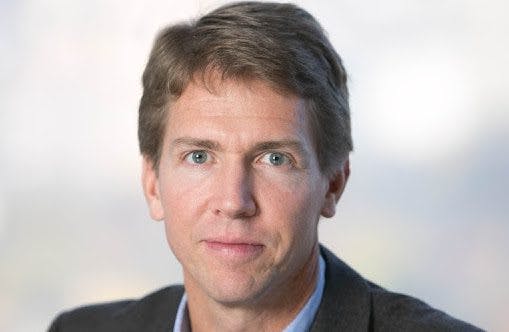Stronghold Raises $105M to Power Bitcoin Mining with Coal Waste
Stronghold expects to have over 28,000 cryptocurrency miners by the end of the year and is currently in negotiations to acquire additional facilities with over 200 megawatts of power capacity, according to reports.

Greg Beard, CEO and co-chairman of Stronghold
- Investors include MG Capital, various family offices, and Greg Beard, who is Stronghold’s co-chairman and CEO.
- To date, over 1,000 acres have been reclaimed and for each bitcoin mined by the plant, an estimated 200 tons of waste coal is eliminated, according to the company
Stronghold Digital Mining, a digital asset mining company powered by alternative energy, announced its $105 million funding round in a statement on June 22.
The fundraising comes from two private placements of equity securities and investors were granted registration rights that require a future public listing, it said. Investors include MG Capital, a number of family offices and Greg Beard, the company’s co-chairman and CEO.
This news comes at a time when government officials and businessmen have called for crackdowns or better alternatives to cryptocurrency mining.
Bitcoin mining and its environmental impact has been a popular conversation in mainstream news as Tesla CEO Elon Musk tweets about environmental concerns and countries like China have cracked down on its country’s mining industry.
Stronghold uses waste coal material to power crypto mining equipment using specialized technology at the company’s power generation facility, the Scrubgrass Generating Plant, based in Venango County, Pa., a spokesperson told Blockworks.
 Stronghold’s power generation facility, the Scrubgrass Generating Plant, Venango County, Pa.
Stronghold’s power generation facility, the Scrubgrass Generating Plant, Venango County, Pa.
Waste coal, also known as coal waste, is material left behind from traditional coal mining.
“This model shows that crypto mining can be beneficial to the environment it is in. Without crypto, we wouldn’t be here. It costs a lot of money to clean up the mess left behind from coal mining,” said a Stronghold spokesperson to Blockworks.
The funds will be used to continue the clean up operations in Pennsylvania, to buy additional crypto mining hardware and also help fund additional facilities to clean up the waste coal as required, the company said.
“A negative impact on the environment has long been a criticism of bitcoin mining, with good reason,” Beard said. “Our ownership of the Scrubgrass Plant, combined with the environmental benefits which accrue to the region, allow us to mine bitcoin at what we believe to be some of the lowest costs in the industry while making a transformational contribution to the environment.”
The Pennsylvania region, and other regions that have been impacted by coal waste, provide the facility with what was once unusable waste material and gives it the ability to convert it into energy while reclaiming the land, based on Stronghold’s generating and environmental control technology and plants like Scrubgrass, it said.
“Simply put, we employ 21st-century crypto mining techniques to remediate the impacts of 19th and 20th-century coal mining in some of the most environmentally neglected regions of the United States,” said Bill Spence, co-founder of Stronghold.
To date, over 1,000 acres have been reclaimed and for each bitcoin mined by the plant, an estimated 200 tons of waste coal is eliminated, according to the company.
“Crypto mining allows us to continue that work by creating an economic incentive to do so. I believe we will see this model in numerous places around the globe, where the economic incentive of crypto will help build necessary infrastructure for power as an example,” a spokesperson said. “The recent developments in El Salvador would suggest that too. This proves there is a great way to mine bitcoin that actually supports communities, rather than taking away from them.”
The company expects to have over 28,000 cryptocurrency miners operating by the end of the year and is currently in negotiations to acquire additional environmentally beneficial facilities with over 200 megawatts of power capacity.






